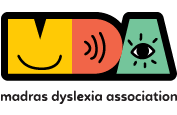
Dyslexia & Behavioural Difficulties
Co-morbidities with SLD Emotional Wellness Parenting
By Dr.Shyamala Dalvi (PhD (Inclusive Education), Masters in Psychology and in Special education -psychologist and a special educator working in the field of education for the past 25 years. State lead for VERS, Maharashtra supporting early childhood education and FLN, Resource person for inclusive education at NCERT, Advisory committee member and master trainer for school assessment and accreditation for Maharashtra State Government
At the outset, one might wonder why we are even discussing these two topics—dyslexia and behavioural difficulties—together. At first glance, they appear to belong to entirely different domains. Dyslexia is commonly understood as a specific learning difficulty, primarily affecting reading, writing, and related academic skills. On the other hand, behavioural problems are generally associated with a child’s conduct, emotions, or social interactions, and seem to have little to do with academic performance.
However, a closer look reveals that these two areas are more interconnected than they may initially appear. It is an important and often overlooked connection. In fact, dyslexia can have a significant impact on a child’s behaviour. Struggling with reading and learning in a conventional classroom can lead to frustration, low self-esteem, and anxiety in children with dyslexia. Over time, these emotional and psychological stresses may manifest as behavioural challenges—such as withdrawal, defiance, aggression, or a lack of interest in school activities.
Let’s understand this in a little more detail.
How is it related?
Children who struggle with reading—especially those with dyslexia—often face more than just academic hurdles. The frustration of not being able to keep up with peers despite having the intelligence to do so, can gradually affect their emotional state and behaviour, both in and out of the classroom. These behavioural consequences are not signs of laziness or defiance, but often a response to the stress and confusion they experience daily. Some common behavioural outcomes include:
1. Low Self-Esteem and Lack of Confidence
Many children with dyslexia become acutely aware of their reading difficulties at an early age. As they see classmates grasp material faster, they may begin to feel “less smart” or “not good enough.” This negative self-perception may start affecting their confidence and prevent them from participating in class or taking on challenges.
2. Avoidance Behaviour
To escape embarrassment or failure, struggling readers might try to avoid reading tasks altogether. This can look like frequent requests to go to the bathroom, acting out to be sent out of class, or even pretending to be sick to miss school. Over time, this avoidance can become a pattern, further hindering their academic progress.
3. Frustration and Anger
Repeated failures and the inability to express themselves academically can lead to emotional outbursts. These children might become easily irritated, lash out at peers, or express anger toward teachers and parents. This frustration is often misunderstood as disciplinary problems rather than cries for help.
4. Oppositional or Defiant Behaviour
In some cases, children may rebel against a system that seems to continually fail them. They might challenge authority, break rules, or intentionally disrupt lessons—not out of disrespect, but as a form of control or to divert attention from their learning difficulties.
5. Comorbidity
Children with dyslexia may also have attention deficit hyperactivity disorder causing more difficulty in focusing on the task and leading to more stress. This apparent lack of focus leading to disengagement in class maybe interpreted as a behavioural problem.
What can be done?
Recognizing that behavioural issues in struggling readers often stem from emotional distress and academic frustration, the focus should be on early intervention, empathy, and consistent support. Here are some strategies to help these children :
1. Safe and Supportive Learning Environment
Children with dyslexia need to feel safe and understood in their learning spaces. Teachers and parents should foster a non-judgmental environment where mistakes are viewed as part of the learning process. Encourage effort, not just accuracy, and celebrate small victories to boost self-esteem.
2. Early Identification and Intervention
Early screening for reading difficulties can prevent many of the negative emotional and behavioural consequences. Once identified, children can receive tailored instruction using evidence-based methods such as Orton-Gillingham or multisensory reading programmes that align with their learning needs.
3. Emotional Validation and Open Communication
Let children know that it’s okay to feel frustrated or overwhelmed. Encourage them to express their feelings and listen without judgment. Validating their emotions can prevent the buildup of shame and anger that often fuels behavioural issues.
4. Buddy System
Having a strong support group from within the peers will be helpful for children to be included in the school. A strong support group among classmates helps children with dyslexia feel accepted, reduces feelings of isolation, and encourages positive relationships.
5. Collaborative Approach
A team approach ensures that the child’s needs are met across different environments. Regular communication among educators, caregivers, and professionals like psychologists or special educators can help in developing consistent strategies for both academic and behavioural support.
6. Social and Emotional Learning (SEL)
Teaching skills like self-regulation, empathy, and coping strategies can empower students to manage frustration and improve their interactions with others. SEL programs can be especially helpful in building resilience in children facing learning challenges.
7. Counselling or Therapy when Needed
If a child shows signs of depression, anxiety, or severe behavioural difficulties, professional support from a counsellor or therapist may be necessary. Therapy can provide tools for emotional regulation, build coping skills, and address any deeper psychological concerns.
Conclusion – Children who struggle with reading often experience frustration, low self-esteem, and emotional stress, which can lead to behavioural issues. Recognizing the link between dyslexia and behavioural problems allows adults to shift from discipline to empathy and early support. Helping children with dyslexia isn’t just about improving reading skills—it’s about nurturing their confidence, emotional well-being, and overall potential.
